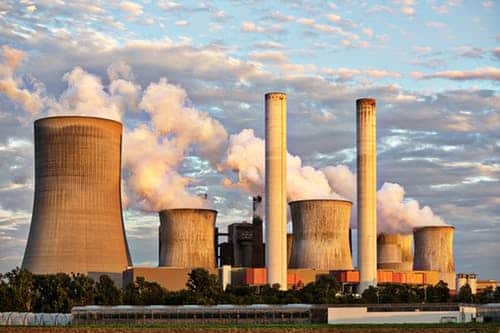U.S. EPA Eases Methane Rules for Oil, Gas Sector, Citing Benefits of Up to $850 Million

The U.S. Environmental Protection Agency on Aug. 13 issued final rules that remove the transmission and storage segment of the oil and gas industry from regulation and revokes emissions standards for that segment. The rules also rescind methane standards for the production and processing segments as controls for ozone-forming volatile organic compounds also reduce methane emissions. The agency said that separate regulation of methane imposed by the 2016 Obama-era rule was improper and redundant. The final rules are estimated to yield net benefits of $750-$850 million over the next ten years, or about $100 million a year.
The move follows a sweeping executive order that President Trump issued in 2017 to undo the prior administration’s climate regulations and agency actions that potentially burden domestic energy development. The agency explained that the Clean Air Act requires a finding that a pollutant contributes significantly to air pollution before establishing new source performance standard requirements, but the Obama administration failed to make such a finding. Therefore, the agency found that inclusion of the transmission and storage segment and the additional methane control standards in the 2016 rule were inconsistent with the law. The agency said that its deregulatory actions to date have saved an estimated $94 billion in unnecessary regulatory costs.
The American Petroleum Industry, which represents the U.S. oil and gas industry, welcomed the revisions, citing consistency with the requirements of the Clean Air Act. The trade group said that the industry continues to drive down methane emissions, which have declined by more than 60 percent from 2011-2018 in five of the largest producing regions across the U.S. despite a dramatic growth in production.
Environmental groups criticized the move, with the Sierra Club saying that the rollbacks would “leave gas transmission and storage equipment uncontrolled under a key Clean Air Program.” The group noted that methane, a powerful greenhouse gas, is 87 times more powerful than carbon dioxide during the time it stays in the atmosphere.
U.S. Senator Joe Manchin, a Democrat representing West Virginia, condemned the move saying that it will “stall the progress being made towards decreasing emissions from fossil operations.” Manchin noted that major oil and gas companies are actively engaged in employing new technologies to detect and repair leaks and “there is no excuse to roll these regulations back when industry has the technology to do so safely and efficiently.”
The agency also issued a package of technical amendments aimed to benefit smaller oil and gas operators who depend on “straightforward regulatory policy.” The amendments exempt low-production wells from monitoring leaks, called fugitive emissions. Further, the rule reduces monitoring of leaks at gathering and boosting compressor stations to half-yearly instead of quarterly. The industry can comply with certain state’s requirements instead of EPA’s, allowing compliance with one set of regulations. Among other changes, the package eliminates burdens to utilize new and more efficient emissions controls, allows deferral of repairs that are not feasible within 30 days, and eases reporting requirements to lower the cost burden by an estimated 25 percent per site.
EnerKnol Pulses like this one are powered by the EnerKnol Platform—the first comprehensive database for real-time energy policy tracking. Sign up for a free trial below for access to key regulatory data and deep industry insights across the energy spectrum.
ACCESS FREE TRIAL